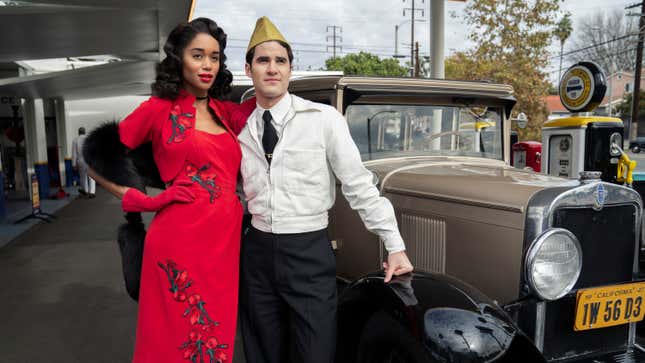

There are so many glossy alternative history television shows and movies in recent years that you’d be forgiven if you need to grab a textbook to remember fact from fiction.
In Once Upon a Time in Hollywood, Quentin Tarantino imagined a world where the Manson cult never got to Sharon Tate. HBO’s The Plot Against America imagines what it would be like if Charles Lindbergh had become president, and the proposed but now canceled Confederate, which would have depicted the Confederate states succeeding during the Civil War, had a competitor in Amazon’s Black America, a TV show idea in which freed slaves form their own nation. There is even a book exploring what Hillary Clinton’s life might have been like had she never married Bill.
And now there is the Ryan Murphy and Janet Mock-produced Hollywood, which is billed as an alternative history of Hollywood’s golden age. The seven-part Netflix series is less a rewrite of one moment in history and more a fantasy that completely reimagines the movie industry as a queer, liberal playground for artists and dreamers. But while Hollywood broadcasts a potent political message about the power of cinema, the series doesn’t quite earn it.
-

-

-

-

-

-

-

-

-

-

-

-

-

-

-

-

-

-

-

-

-

-

-

-

-

-

-

-

-

-

-

-

-

-

-

-

-

-

-

-








































